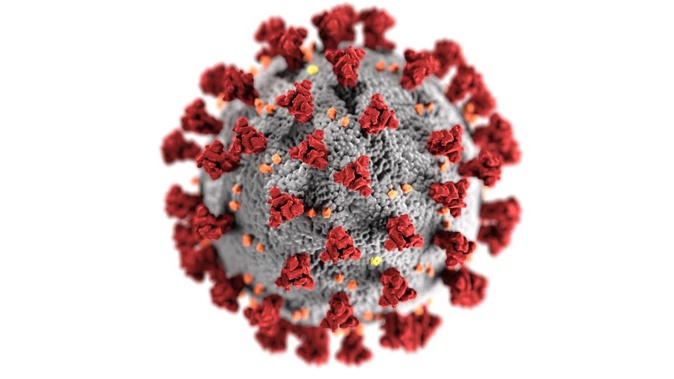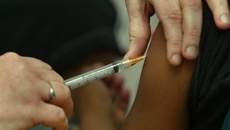
The Delta variant of the Sars-CoV-2 coronavirus – scientific name B.1.617.2 – has spread to 80 countries since first being detected late last year. What makes it so concerning? Science reporter Jamie Morton explains.
It spreads more easily
Within months of its detection, the Delta variant has become what one US public health scientist has called the "greatest threat" of the pandemic in 2021.
Perhaps the biggest risk factor was its ability to spread quickly through populations: it was thought to be partly responsible for India's disastrous second wave this year.
"We know that it's a lot more transmissible – in fact, it's about twice as transmissible as the original variants of Covid-19," said Professor Michael Plank, a modeller at Te Punaha Matatini and Canterbury University.
"We're still learning about exactly why that is - there's probably a range of factors – but we know from data on things like contact tracing, the proportion of contacts that get infected with this variant is higher."
Plank said New Zealand's lack of restrictions on movement and contact under level 1 would make it an "ideal environment" for the virus to spread virally.
"And as we are still in very early stages of the vaccine roll-out, the immune levels at the population level are still very low."
He also added studies have shown the virus spreads up to 40 per cent faster in winter than summer.
"So this elevates the risk of transmission in New Zealand right now, especially in indoor or poorly ventilated environments."
Delta now accounted for more than 90 per cent of new cases in the UK – that was nearly twice more than the B.1.17, or Alpha variant, that was first detected in the country.
While Alpha was between 43 and 90 per cent more transmissible than earlier variants, Delta could even be between 30 and 100 per cent more transmissible than Alpha.
Part of the reason could be small changes in the "spike protein" of the variant, which it used to bind to the ACE2 receptor that gave it entry to human cells.
Another study has suggested a separate mutation could help its ability to fuse with human cells once it latched on – which then allowed it to infect more cells and ultimately overwhelm immune defences.
"The Delta variant, and others as well, appear to have mutations that allow better binding, and therefore the virus is able to more efficiently and effectively infect cells," said Dr Jemma Geoghegan, an ESR and Otago University virologist.
"That creates a higher viral load and makes people more contagious."
Experts have also pointed to evidence suggesting that people infected with the variant become more infectious earlier than that of its virus predecessor.
That backed research from Chinese doctors who say that up to 12 per cent of patients were becoming severely or critically ill within three to four days of the onset of symptoms.
In the past, the proportion had been only 2 or 3 per cent of those infected.
"This variant of concern means that you can start to become more infectious to people earlier on, so we know that you're very infectious with any variant or wild strain at about day five when you become symptomatic but certainly from day three onwards you can of course still infect people," University of New South Wales epidemiologist Professor Mary-Louise McLaws told Australia's ABC.
"With this particular Delta it looks as if you are very much more infectious."
Geoghegan said the data coming back from the UK was so rich that scientists now had a generally good understanding of how the variant was behaving.
"That's really changed the game. We've been able to see that this Delta variant has been able to replace the existing Alpha variant, meaning that it has some selective advantage over that one."
Dr Andrew Chen, a researcher at University of Auckland-based Koi Tū: The Centre for Informed Futures, said people across the country needed to be vigilant and use the NZ COVID Tracer to support contact tracing.
"New Zealand has about 1.4 million devices using Bluetooth Tracing, which equates to approximately 44 per cent of the adult population," he said.
"That's reassuring, although it would be better if this was at least 60 per cent.
"Unfortunately, this is only useful if the case was also using Bluetooth Tracing."
Chen said only about 250,000 to 300,000 people were scanning QR codes or completing manual entries on a daily basis up to Monday this week.
"That is less than 10 per cent of the adult population and is not high enough to give us confidence that we could use that information to contain an outbreak if it appeared anywhere in the country."
It's more severe
"Because it's infecting more people, more people are going to be hospitalised, so it can still be difficult to tease those things apart," Geoghegan said.
"But the data suggests that the Delta variant is increasing the likelihood of hospitalisation, and we're not really sure why."
A study by University of Edinburgh researchers, and published in The Lancet, suggested the variant carried around double the risk of hospitalisation compared with the Alpha variant.
During the period studied – April 1 to June 6, 2021 – there were 19,543 community cases and 377 hospitalisations where a specific variant of Covid-19 was confirmed.
Of these totals, 7723 cases and 134 hospitalisations were found to have the Delta variant.
People with underlying conditions were more at risk of being hospitalised, researchers said.
Geoghegan added that the UK had a good vaccination rate – and it still appeared the vaccines were effective and reducing hospitalisations.
"Until we have a better understanding from what's happening in other places – especially places that don't have such good vaccine coverage – it's still too early to [speculate] what's actually causing the increase."
As for the risk of mortality, there hadn't been enough deaths yet to compare Delta-related mortalities with those of others.
But there's also emerging evidence to suggest Covid-19 symptoms could be changing, because of the variant.
"Cough is rarer and we don't even see loss of smell coming up in the top 10 anymore," said King's College London epidemiologist Professor Tim Spector, who is leading the UK-based Zoe COVID Symptom Study.
There was a risk that younger people could be more likely to think the symptoms – namely headaches, and followed by sore throat, a runny nose, and fever – were just a bad cold, and not to self-isolate.
It tests vaccines
"There is definitely a reduction in [vaccine] efficacy – not just in Delta, but with other variants we've seen," Geoghegan said.
"But we expected this to happen. And it does look like, with two doses of the vaccine, it is preventing serious disease and death, because there's a huge reduction in hospitalisation rates among those people who have had two doses."
As Geoghegan pointed out, the same Scottish study indicated those vaccinated were less likely to be admitted to hospital with the variant, compared with those who hadn't received a jab.
But it also found strong protective effects against the Delta variant were not seen until at least 28 days after the first vaccine dose.
In community cases at least two weeks after the second dose, the Pfizer-BioNTech vaccine that most Kiwis will receive was found to provide 79 per cent protection against infection from the Delta variant, compared with 92 per cent against the Alpha variant.
For the same scenario, the Oxford-AstraZeneca vaccine offered 60 per cent protection against infection with the Delta variant compared with 73 per cent for the Alpha variant.
This lower vaccine effect may reflect that is takes longer to develop immunity with Oxford-AstraZeneca, experts said.
"Whilst possibly not as effective as against other variants, two doses of the Pfizer-BioNTech and Oxford-AstraZeneca vaccines still offer substantial protection against the risk of infection and hospitalisation," said the study's leader, Professor Aziz Sheikh.
Further data has offered more cause for optimism.
Public Health England researchers have reported the Pfizer-BioNTech vaccine was 88 per cent effective against symptomatic disease from the Delta variant two weeks after the second dose, compared to 93 per cent effectiveness against the Alpha variant.
The effectiveness of the Oxford-AstraZeneca vaccine was similarly high: proving 92 per cent effective against hospitalisation with two doses, and no deaths among those vaccinated.
Take your Radio, Podcasts and Music with you









